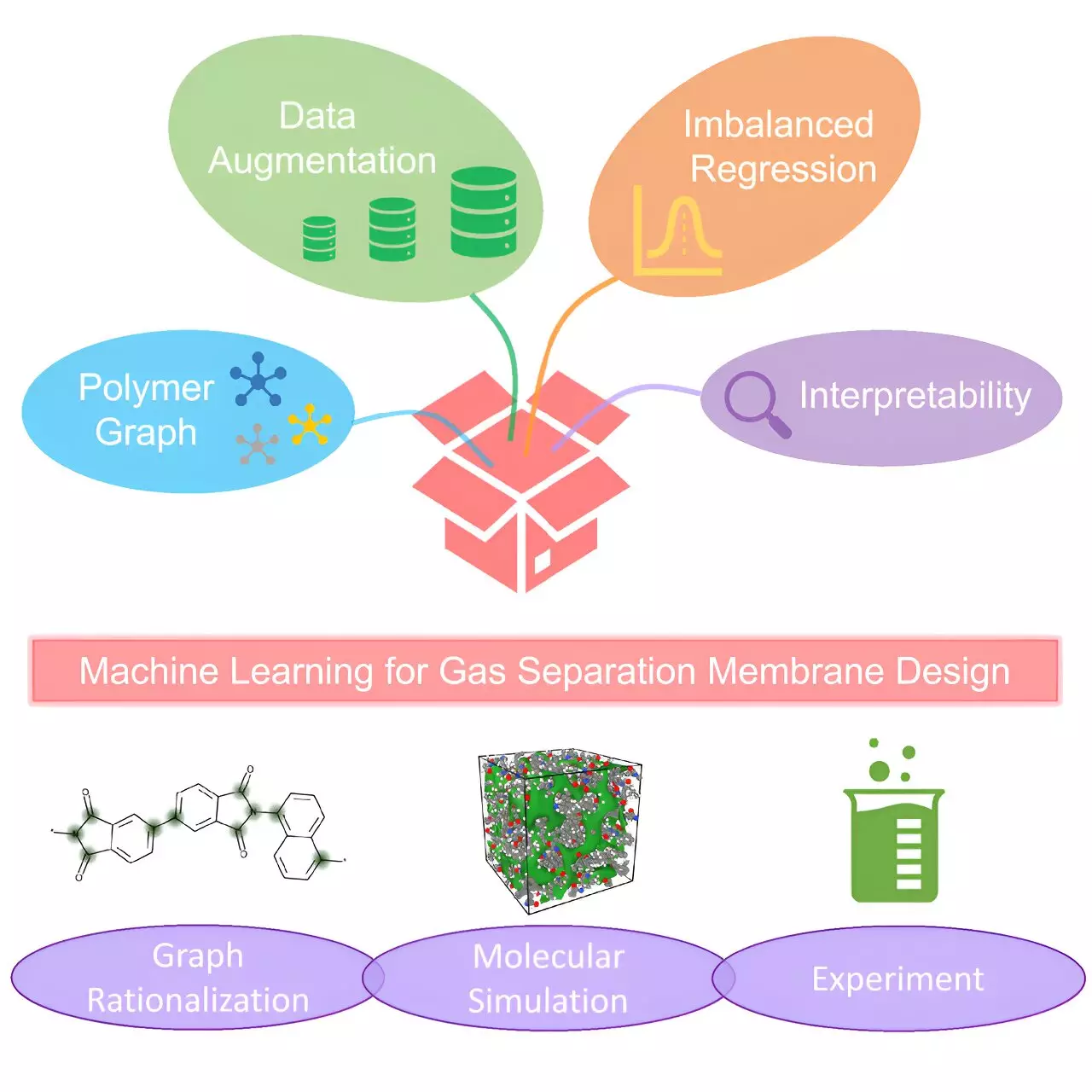Gas separation is a crucial process in manufacturing and research industries, responsible for a significant portion of energy consumption and carbon emissions in the United States. Traditional methods of gas separation have been costly and environmentally harmful, prompting researchers to explore more efficient and sustainable alternatives.
The Role of Polymer Membranes
Polymer membranes have emerged as a promising solution for gas separation, offering the potential to increase efficiency and reduce carbon emissions. The key to the success of polymer membranes lies in finding the right material with the ideal balance of selectivity and permeability.
A team of researchers at the University of Notre Dame has made significant progress in this area by utilizing a graph-based machine learning approach. By training graph neural networks on datasets, the researchers were able to identify polymers that outperformed previously synthesized membranes in gas separation efficiency.
The team’s research led to the discovery of two polymers with the optimal properties for gas separation. These materials, originally used in electronics applications, were found to be highly effective in separating gases. The use of machine learning algorithms helped the researchers uncover hidden gems in polymer synthesis.
One of the challenges in polymer synthesis is the incomplete data regarding molecular structure and chemical properties. However, the researchers were able to overcome this limitation through algorithmic innovations developed by computer scientists. By enriching the graph-based model with molecular properties data, the team was able to predict and explain the superior performance of the identified polymers.
The top-performing polymers identified by the research team hold great potential for industrial applications. These membranes have the capability to separate multiple gas pairs, essential for a wide range of industrial processes. The advancements in gas separation technology facilitated by polymer membranes offer a promising solution for improving efficiency and reducing environmental impact.
The research conducted by the team at the University of Notre Dame represents a significant breakthrough in gas separation technology. By leveraging graph-based machine learning and algorithmic innovations, the researchers have identified polymers with unprecedented efficiency in gas separation. These findings have the potential to revolutionize industrial processes and contribute to a more sustainable future.


Leave a Reply